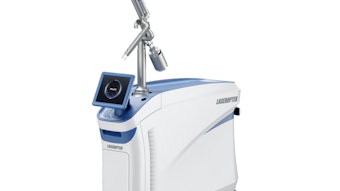
Karen Horton, MD, a plastic surgeon in private practice in San Francisco, credits her first mentor, Christopher Forrest, MD, of the University of Toronto, with putting her on the path to her career. “I spent an hour and a half doing rounds with him, and when we returned to his office, I said, ‘I want to do this,’” says Dr. Horton. “He took me under his wing. He opened doors, helped me get involved in clinical research, and gave me a firsthand perspective on being a physician. He was the gateway to my whole career.” Today Dr. Horton is a fellow of the American College of Surgeons and an international speaker and author, in addition to her role as surgeon and private practice owner.
As she discovered early in her career, mentors can provide valuable counsel and expose you to new opportunities—especially during times of transition, whether from medical school to residency, residency to employment, or employment to practice ownership.
Several studies have shown that residents and physicians who have mentors are more confident and engaged in their careers, make better decisions and have an increased desire to pursue their field of choice*. Mentors can also help new physicians navigate the daunting task of setting up and managing a successful practice, and help more established physicians keep pace with technological changes.
“The business-related parts of medicine are not taught in medical school,” says Danielle DeLuca-Pytell, MD, a board-certified plastic surgeon in Troy, Michigan. “That’s a giant hole that you can’t fill with your medical education. People that have been in the business of medicine can really help.”
Read on to learn what a mentor can do for you—and how to start and maintain a mentoring relationship.
Mentorship Models
Traditionally, physicians would have one mentor who helped guide them in their career or specialty. But with so many paths even within a single specialty, such as dermatology or aesthetic surgery, you may have multiple mentors supporting you at different times.
In her February 2010 paper, “Mentoring in Medicine” (Canadian Family Physician), Savithiri Ratnapalan, MD, identifies four models of medical mentorship:
Apprenticeship model, where there is a hierarchy of professional positions and the trainee is mentored and taught by a more experienced professional.
Cloning model, which is based on role modeling where the mentor is planning for succession and the mentee is groomed into the role.
Nurturing model, which creates a safe, open environment in which mentees can discuss personal issues, learn and try things for themselves with their mentors acting as resources and facilitators.
Friendship model, which occurs when mentors and mentees are close to or at the same professional level and advise each other as peers.
“A mentor is someone who has a skillset or knowledge base you don’t have but would like to obtain,” says Eric Bernstein, MD, MSE, of Main Line Center for Laser Surgery in Ardmore, Pennsylvania. “In the old days, you had one guru. Now there’s such a big base of specialized knowledge—surgical dermatology, outpatient dermatology, laser treatments, injectables, consult services, practice management—that people are likely to have several mentors over the course of their careers.”
For example, Dr. Horton gained a second mentor following residency when she joined a practice in which another female surgeon was preparing to retire. The older doctor shared with Dr. Horton her experience as both a private practice physician and woman in the surgical field. “We need mentors throughout all different stages of our lives,” says Dr. Horton. “I really value the pearls of wisdom that I gleaned from having that short relationship.”
Your role as a doctor may also expand over time. “Mentors have been really important in helping to guide the other parts of my career that don’t necessarily relate to patient care,” says Seemal R. Desai, MD, founder and medical director of Innovative Dermatology in Plano, Texas, president of the Skin of Color Society, and a specialist in pigment disorders in skin of color. He credits his mentors with helping him become involved in professional associations and step into leadership positions. “Those things help you become a better clinician,” he says.
How To Find a Mentor
If you are a resident and your program does not offer a formal mentorship program, tell your program director that you are looking for a mentor. You can also seek out physicians you admire and whose careers you hope to emulate. “Find somebody who has the practice that you would love to have in 5, 10 or 20 years,” says Dr. Horton.
Dr. Bernstein, president of the American Society for Laser Medicine and Surgery (ASLMS), recommends seeking out mentors at smaller academic meetings, such as the ASLMS or American Society for Dermatologic Surgery (ASDS) conference. “You’ll have a much better opportunity to get up close and personal with other physicians at these events,” he explains.
Specialty associations, such as the American Academy of Dermatology and American Society of Plastic Surgeons, as well as professional associations including The Skin of Color Society, offer mentorship opportunities. You can also look outside of your own specialty. “A mentor can just be within the medical field,” says Dr. Desai.
Dr. Horton co-founded the women’s microsurgery group through the American Society for Reconstructive Microsurgery (ASRM) to help others find mentors to support them in their careers. “Everybody really wants the new person to succeed—there is so much to learn and so much to teach,” she says.
Don’t be afraid to reach out to experienced providers for guidance. “Doctors spend a whole career collecting knowledge and experience,” says Dr. Bernstein. “When you teach and mentor, you’re spreading your knowledge all over the country and all over the world. It’s tremendously sayisfying.”
How To Make the Relationship Work
Once you have found a potential mentor, lay the groundwork for a successful relationship by discussing upfront the amount of contact and level of support that each person expects. The key is “knowing who you are, knowing what you’re looking for and finding somebody you feel comfortable talking to who has an interest in mentoring you,” says Dr. Horton.
For example, do you want a more formal mentorship where you shadow or work with the other physician? Or are you looking for someone to have a conversation with every week and review cases with you? It is important to listen actively, be open to feedback and be respectful of your mentor’s time.
And mentoring can be a two-way street. The exchange with someone who has an inquiring mind can bring a fresh perspective. “It’s important not only to have mentors who are senior or above you, but also to have people who are new to the field as mentors,” says Dr. Bernstein. Such “reverse mentoring” occurs when a younger person shares their knowledge or skill sets, such as using the Internet or social media, with a more senior professional.
Regardless of the type of mentoring relationship you establish, having someone to turn to at different points in your career is helpful. “Mentors are extraordinarily important because we don’t all have to reinvent the wheel,” says Dr. DeLuca-Pytell. “You’re always facing new things, so having somebody that you trust and can look up to is invaluable.”
Stephanie Kramer is a freelance writer who specializes in healthcare.
Image copyright Getty Images
Resources:
*Tracy EE, Jagsi R, Starr R, Tarbell NJ, “Outcomes of a pilot faculty mentoring program,” (Am J Obstet Gynecol. 2004 Dec;191(6):1846-50)
*Benson CA, Morahan PS, Sachdeva AK, Richman RC, “Effective faculty preceptoring and mentoring during reorganization of an academic medical center” (Med Teach. 2002 Sep;24(5):550-7)











